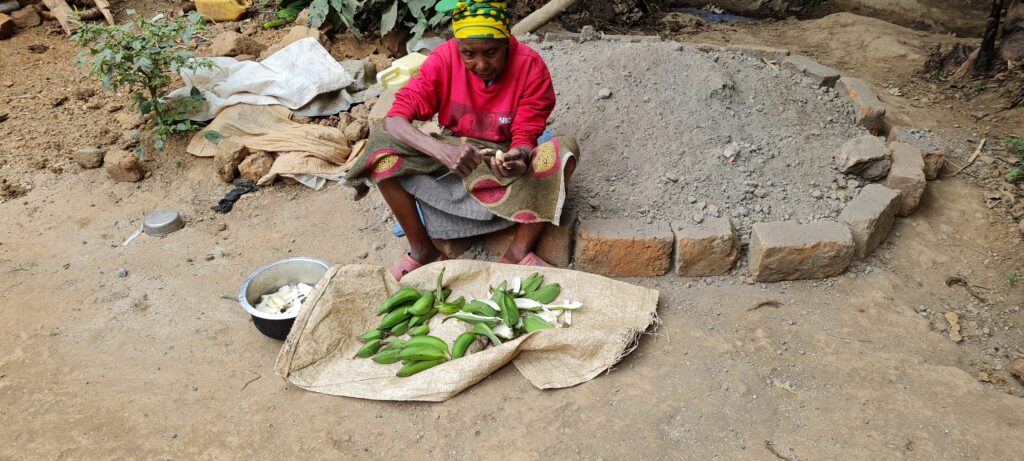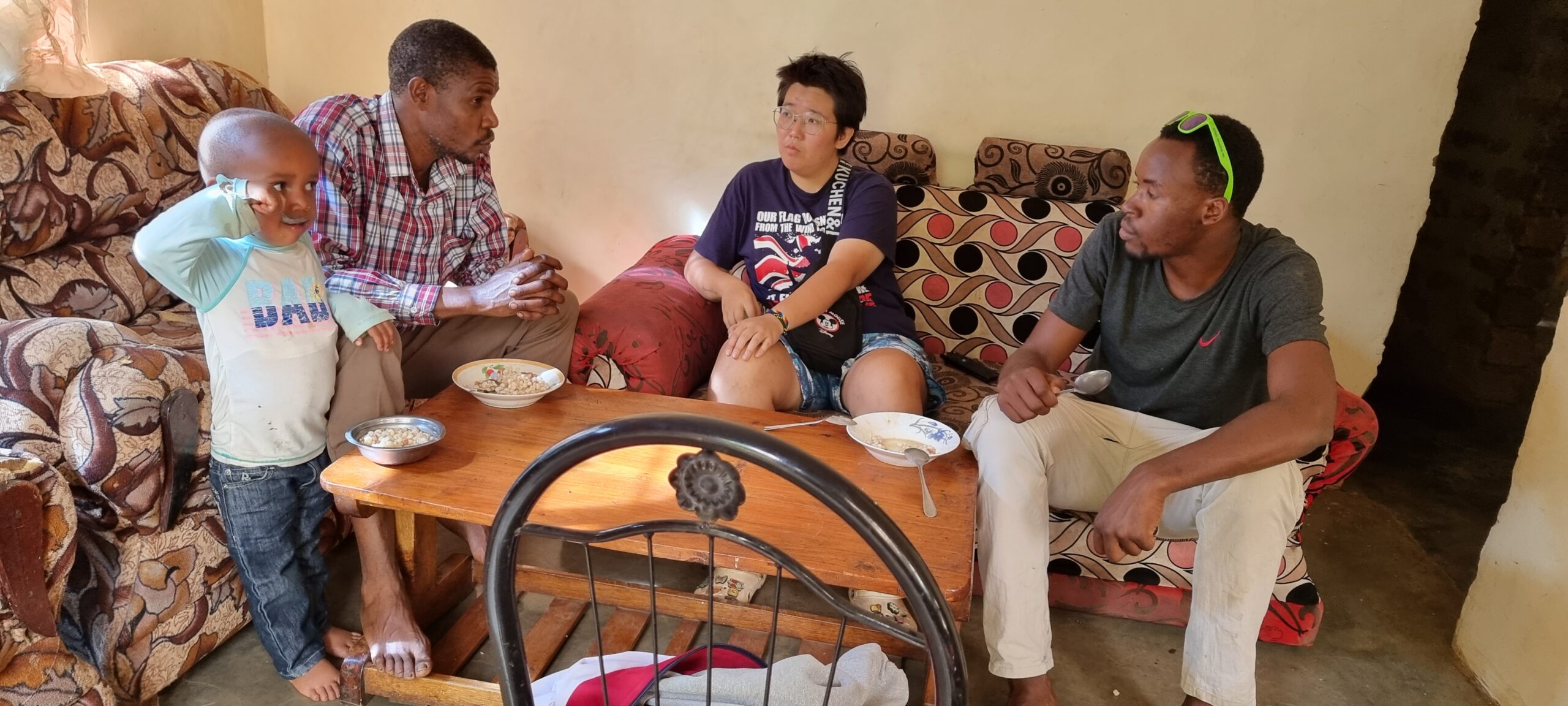
Kilimanjro Aid Project focus on women empowerment by the pig provision project , where women receive two piglets and education on pig rearing, and subsequently give back two piglets after reproduction, is a good important for an income-generating and women empowerment initiative. These projects have proven to be successful in various places especially in rural communities.
These are benefits of Pig Provision Projects for Women Empowerment
By receiving piglets, women are given an opportunity to engage in pig farming as a source of income. They can raise the pigs and sell them or their offspring to generate income for themselves and their families. This contributes to poverty reduction and economic self-sufficiency.
Through the education and training provided, women acquire valuable knowledge and skills in pig rearing, including feeding, breeding, disease management, and basic business principles. These skills can be transferred to other livestock ventures or agricultural activities, enhancing their overall livelihoods.
The project's "give-back" system, where women pass on two piglets to other women after reproduction, ensures the sustainability and expansion of the initiative. This creates a cascading effect, enabling more women to benefit over time and increasing the impact on the community.
As women become financially independent and actively participate in economic activities, their social standing and decision-making power within their households and communities can improve. This contributes to greater gender equality and women's empowerment in broader social contexts.
The pig provision project can have a positive ripple effect on the entire community. Increased income and economic activity generated by women's participation can stimulate local markets, generate employment opportunities, and contribute to overall community development.
Establish and support women’s self-help groups, which provide a platform for women to come together, share experiences, and collectively address their socio-economic challenges. SHGs can offer financial assistance, develop group enterprises, promote saving habits, and facilitate access to markets and government schemes.
Kilimanjaro Aid Project through SHGs proven effective in promoting women’s empowerment, poverty reduction, and community development. By providing a supportive environment, access to financial resources, capacity building, and collective action, SHGs enable women to overcome socio-economic barriers and achieve sustainable livelihoods.
These are benefits of Women self groups
Establishing and supporting Women's Self-Help Groups (SHGs) is an effective approach to women's empowerment and poverty reduction. SHGs provide a platform for women to come together, build solidarity, and collectively address their socio-economic challenges. Here are some key components and benefits of SHGs:
Facilitate the formation of SHGs by organizing women from the same community or with shared interests. Encourage regular meetings where members can discuss their issues, share experiences, and provide mutual support. Promote participatory decision-making and democratic group processes.
SHGs often encourage members to save small amounts regularly, pooling their savings into a common fund. This collective savings can be used to provide financial assistance to group members in the form of loans for income-generating activities, emergencies, or investment in productive assets.
SHGs can explore opportunities for group enterprises where members collectively engage in income-generating activities such as agriculture, handicrafts, food processing, or services. By pooling resources, skills, and market access, members can establish sustainable and profitable ventures.
SHGs can play a vital role in facilitating access to markets and government schemes. They can negotiate collectively for better prices and market linkages for their products. Additionally, SHGs can assist members in accessing government programs, subsidies, and support targeted at women entrepreneurs or rural development.
SHGs empower women by providing a platform for them to express their opinions, gain confidence, and participate in decision-making processes. They create opportunities for collective advocacy and action on issues affecting women's rights, social injustices, and community development.
Successful SHGs can serve as models for replication in neighbouring communities, expanding the reach and impact of the empowerment initiatives. Encourage networking and collaboration among SHGs to share experiences, best practices, and lessons learned.
Regular monitoring and evaluation of SHGs are crucial to assess their progress, identify challenges, and make necessary improvements. It helps measure the impact of the SHGs on women's economic empowerment, social cohesion, and poverty reduction.
SHGs empower women by providing a platform for them to express their opinions, gain confidence, and participate in decision-making processes. They create opportunities for collective advocacy and action on issues affecting women's rights, social injustices, and community development.
Provide agricultural training, improved farming techniques, and access to inputs, such as seeds, fertilizers, and irrigation systems. Additionally, encourage women to form farming cooperatives to collectively access resources, share knowledge, and negotiate better prices for their produce.
Agricultural support and farming cooperatives are valuable tools for empowering women in agriculture and enhancing their productivity, income, and market access. Here are key elements and benefits of agricultural support and farming cooperatives for women.
Kilimanjaro Aid Project through Agricultural support and farming cooperatives provide a platform for women farmers to collectively address challenges, access resources, and enhance their agricultural productivity and market participation. They contribute to women’s empowerment, poverty reduction, and sustainable agricultural development.
These are benefits of Agricultural support project
Provide agricultural training and extension services tailored specifically for women farmers. This includes educating them on improved farming techniques, sustainable agricultural practices, soil conservation, pest management, and climate-smart agriculture. Building their knowledge and skills enhances their productivity and resilience in agricultural activities.
Facilitate women's access to quality agricultural inputs, such as seeds, fertilizers, pesticides, and irrigation systems. This can be done through group procurement, negotiating bulk discounts, or connecting women farmers to input suppliers or government subsidy programs. Access to inputs enables them to optimize their agricultural production.
Encourage women to form farming cooperatives or groups to pool their resources, such as land, labor, and capital. Cooperatives provide a platform for women to collectively access and manage resources, reducing individual risks and costs. Sharing resources enables them to scale up their agricultural activities and increase their bargaining power.
Farming cooperatives foster knowledge sharing and peer learning among women farmers. By coming together, they can exchange experiences, learn from each other's practices, and acquire new skills. Peer learning encourages innovation, adaptation to local conditions, and the adoption of best agricultural practices.
Empower women to collectively market their agricultural produce and negotiate better prices. Farming cooperatives can explore opportunities for value addition, such as processing, packaging, and branding of their agricultural products. This enables them to access higher-value markets and increase their income.
Farming cooperatives can advocate for the interests of women farmers at local, regional, and national levels. They can engage in policy dialogue, lobby for favorable agricultural policies, and access government support programs targeted at smallholder farmers. Collective representation strengthens their influence and ensures their voices are heard.
Through farming cooperatives, women can jointly manage risks associated with agriculture, such as weather fluctuations, pests, and diseases. They can collectively invest in climate-resilient practices, crop diversification, and insurance schemes to reduce vulnerability and enhance resilience.
Participation in farming cooperatives fosters women's empowerment and leadership skills. They gain confidence, decision-making abilities, and experience in collective management. This can lead to women assuming leadership positions within the cooperative and in broader community and agricultural institutions.
Farming cooperatives can also facilitate access to financial services for women farmers, such as credit, savings, and insurance. Collective financial management and creditworthiness of the cooperative can enhance women's access to formal financial institutions and improve their financial resilience.

WhatsApp us